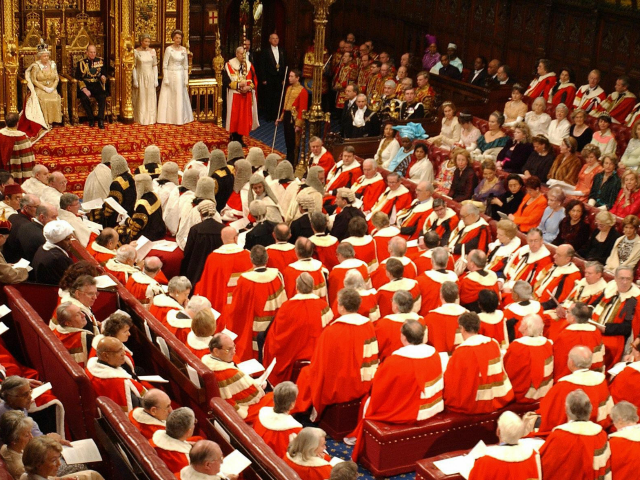Prime Minister Boris Johnson is reportedly planning to grant peerages to Tory Brexiteers in order to rebalance the remainer-dominated House of Lords, according to a report.
Conservative insiders have told The Telegraph that those including trade experts and lawyers are expected to be elevated in coming weeks before key Brexit legislation is passed. Those names being discussed include Brexiteer former MP Zac Goldsmith, Martin Howe QC, trade specialist Shankar Singham, and businessman Johnny Leavesley.
A source told the newspaper: “It is being discussed in Downing Street. It’s time now to take the Lords on at its own game. They need more people in there to make the case for Brexit. Martin Howe’s name is in the frame, as is Shanker’s.
“They are looking to promote people of real talent who haven’t stood for election but whose expertise and specialist knowledge could prove invaluable when it comes to passing Brexit-related legislation.”
The House of Lords is a bastion of Remainerism, with one Cabinet minister telling The Telegraph: “There are currently only 50 Eurosceptics out of nearly 800 peers. Rather than using up the quota on crony appointments, the rationale is to inject some expertise back into the upper chamber.”
The report comes after the new Conservative government is said to be considering merging the foreign aid office — the Department for International Development, or DfID — with the Foreign Office. The Telegraph reported last week that both DfID and the FO have been asked to draw up plans for a merger. The idea is said to come from the top, with Prime Minister Johnson having previously criticised DfID’s £13.4 billion budget, saying “we can’t keep spending huge sums of money like some independent Scandanavian NGO”.
DfID has come under fire in the past for its spending of the foreign aid budget. Brought into law in 2015 by liberal-progressive Tory Prime Minister David Cameron, the way the legislation was passed means the UK must spend 0.7 per cent of GDP on foreign aid annually. With more money being spent on foreign aid than on policing, the policy has come under criticism for dumping vast amounts of money on controversial organisations and allegations of misspending. In one example of wasted funds, DfID has given millions to an African female pop group, dubbed the Ethiopian Spice Girls.
However, in a case of bitter irony, after Hurricane Irma devastated the Caribbean in September 2017, Britain’s own international aid laws prevented tapping into the country’s £13.4 billion aid fund because the British overseas territories the British Virgin Islands, Anguilla, Turks, and Caicos islands were considered too wealthy to qualify under Organization for Economic Cooperation (OECD) rules. While the government had pledged £57 million to the devastated territories, critics have said much more could have been given if the government was allowed to access those reserves. Meanwhile, DfID funds continue to be distributed to China and India, which both have space programmes.
The government is also set to look into overhauling the Remainer-dominated Civil Service and review how the military is spending taxpayers’ money. Mr Johnson is said to be reviewing the Civil Service’s human resources structure with his advisor Dominic Cummings, who has criticised how “almost no one is ever fired” and said in 2014 that a permanent Civil Service is “an idea for the history books”. While the Ministry of Defence spending review will reportedly evaluate procurement and whether Britain is getting value for money.
Conservative MP Tom Tugendhat told the BBC on Monday: “There’s a real issue with defence – we know that an organisation that spends £42 billion and has got issues with availability of ships, aircraft, and equipment really does need a shake-up.”

COMMENTS
Please let us know if you're having issues with commenting.